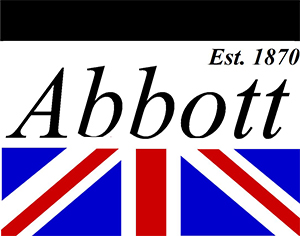How do you keep your cool whilst things are hotting up?
Hydrofluorocarbons (HFCs) are harmful man-made greenhouse gasses.
Both developed and developing countries have taken on mandatory commitments to reduce the global production and consumption of HFCs. The 2014 EU F-Gas Regulation means that existing Refrigeration and air-conditioning systems (RAC) will need to comply both in the EU and the UK.
Many RAC systems use HFC refrigerants. The most commonly used HFCs are R-404A, R-134a and R-410A. If these refrigerants are released to the atmosphere they have a very high global warming potential.

Abbott & Co. BSEN13445 Ammonia Pressure Vessel in manufacture.
F-gas Phase down
In order for the EU to meet its F-Gas targets the quantity available on the market will be cut in a series of steps
The phase-down is based on “GWP-weighted” quantities of HFCs. GWP is the global warming potential of a substance.

The table opposite illustrates the GWP of various refrigerants. During the HFC phase-down it will be important to avoid using the refrigerants with the highest GWPs such as R-404A. It is clear to see the advantages of using ultra-low GWP refrigerants such as ammonia, CO2 or the recently introduced Hydrofluoroolefin (HFOs1) e.g. R-1234ze.
Whilst looking at using low GWP products the other consideration also is flammability of the refrigerant. It may be the case that a low GWP refrigerant may be highly flammable or have other safety implications depending on the intended system of use e.g the toxicity of Ammonia.
2020 and beyond
There will be a ban from January 2020 on using Virgin HFC’s to service refrigeration equipment that requires a refrigerant that has a GWP of 2500 or above. Whilst you can technically service the existing plant by using reclaimed refrigerant; with less on the market it may just not be available. For existing HFC refrigeration plants it is therefore important to avoid leakage.
Only 20% of the quantity of HFC’s that were sold in 2015 will be available in 2030.
There are new blends of refrigerants being introduced which tend to be blends of HFCs and HFOs . If released in to the atmosphere HFOs break down quickly and so do not have a big impact on Global warming. Some of these refrigerants however can be expensive and flammable.
Abbott & Co. Pressure Vessels
Since 1870 Abbott & Co. have embraced many changes across many industries. Whatever Pressure Vessels you require for your installation we are here with a wealth of experience and a portfolio of Design codes such as ASME, BSEN13445 and PD5500. We can guide you through the whole process from Design to manufacture complete with insulation or paint. Delivery to site can even be arranged!

Currently in manufacture we can share with you some internals of one of the Ammonia storage vessels in production.
For all of your Refrigeration and Air conditioning needs please do come to us with your enquiry. Tel 01636 704208 or email us at info@abbottpressurevessels.co.uk.
Quality Great British Pressure Vessels to be proud of.
Cool aren’t they?
